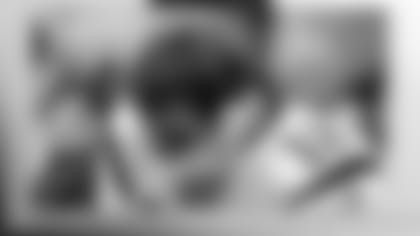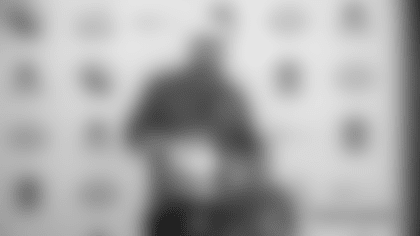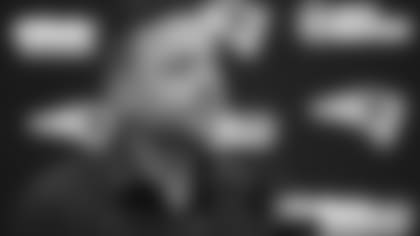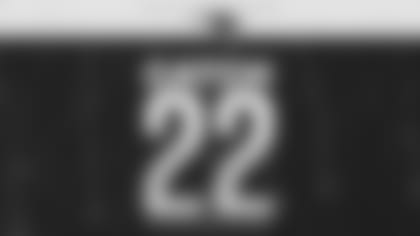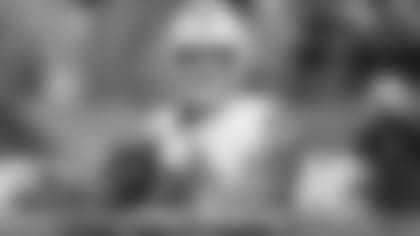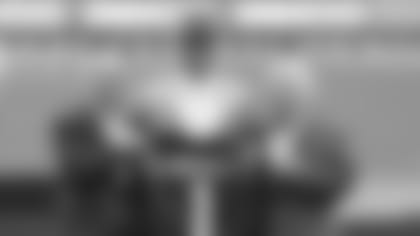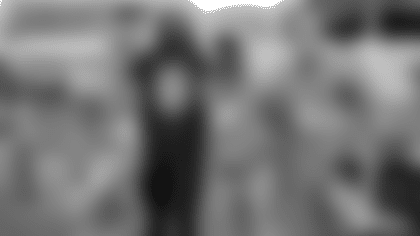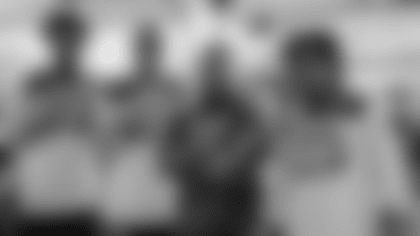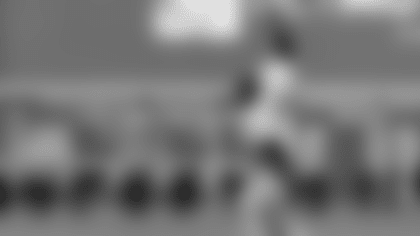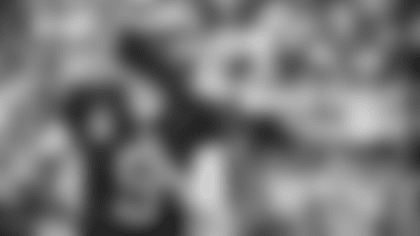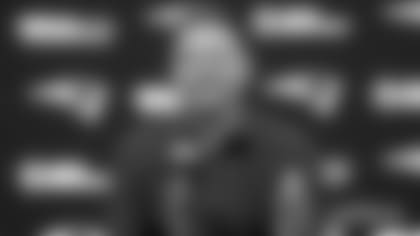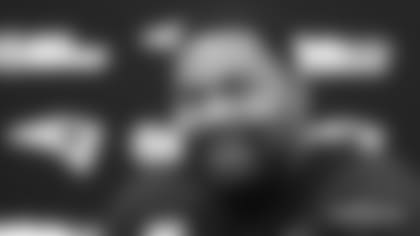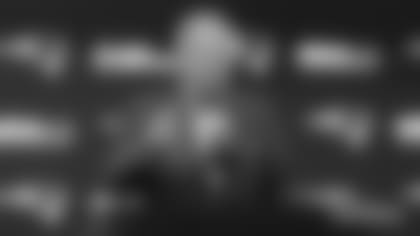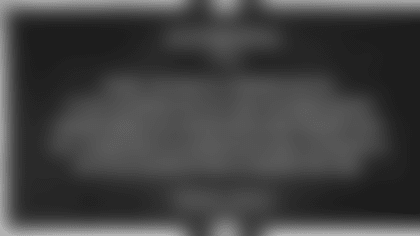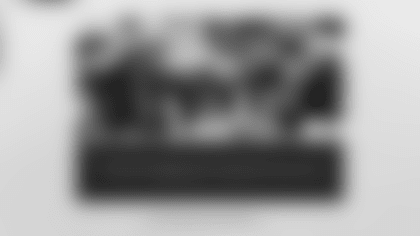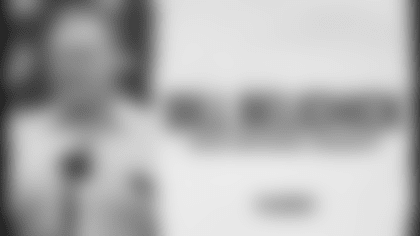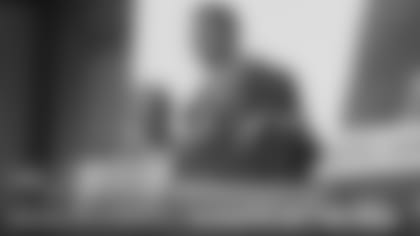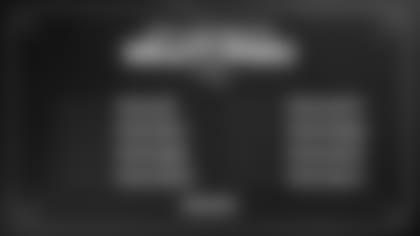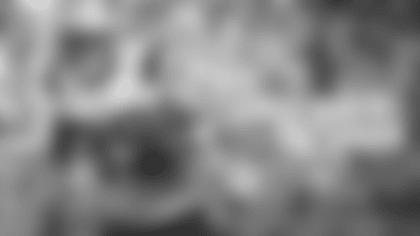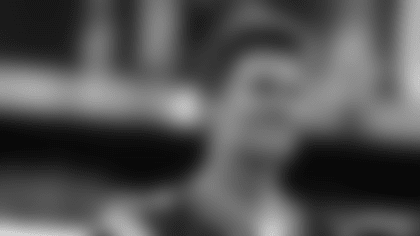HEAD COACH BILL BELICHICK
[wysifield-embeddedaudio|eid="625071"|type="embeddedaudio"|view_mode="full"]
Q: What did you think of your defense's performance on first down last night?
BB: I mean, we had our moments. I'd say everything last night just centered around consistency. At times we did things well enough in the game in all three phases, but not all the time. We've just got to do a better job of coaching, playing and being more consistent in all situations, really in all three phases of the game.
Q: How do you best balance turning the page from last night but also making sure you learn and correct the mistakes from that performance?
BB: Yeah, that's a good question. That's what we have to try and do when the players come in tomorrow. We have to spend a little bit of time on the things that we need to make sure that we correct and address or we'll see them again and they'll be a problem again and also, as you said, turn the page and move on to Pittsburgh. Pittsburgh is schematically quite a bit different than Miami, so we can't dwell on the Miami game. Pittsburgh is a great team. They have their way of doing things and their schemes that they run and we'll have to start preparing for those, but there could be, as always, some carryover if you show them that you're vulnerable to a certain type of play or problem that if you don't get that fixed you'll see again the following week. We'll have to move quickly on that Wednesday. If it's a situational play, that could come later in the week when we go over those specific situations. We'll have to try and balance that this week; particularly tomorrow.
Q: What has stood out to you about past visits to Heinz Field in terms of past visits your team has made to that stadium?
BB: Well, it's a great environment. It's a great football area - western Pennsylvania. Pittsburgh has had a lot of great players and great coaches, high school football, college football, pro football, championships in that area, both collegiately and professionally. It's great history and great tradition there. The fans are very passionate about football and that's reflected at the stadium. They give their team great support. It'll be loud. It'll be intense, like it is in a lot of stadiums that we go into. But they do a real good job there.
Q: Marquis Flowers seemed to be leading the defense a little bit more in and out of the huddle. How did that role come about, if I saw it correctly?
BB: Right. Yeah, I think you did, Mike [Reiss]. There's a number of players that were in that type of a role due to our depth, some depth issues that we had with the linebackers and defensive linemen, including Kyle [Van Noy] and Trey [Flowers] that can be involved in that and usually they are involved in that. A lot of other players, our linebackers, which all of the linebackers that were active played in the game, so we had different packages and different substitution patterns. It wasn't always the same player in there, so as those players switched we had to at times move the communication from one player to the next when one guy wasn't in there. I don't think that was the major issue last night. I'm not saying it was perfect, but we had a lot of other things that were more of a problem than that. I thought all of the guys that did it - and the safeties gave them a lot, as they do - Devin [McCourty], Duron [Harmon] and Patrick [Chung] and Jordan [Richards] when he was in there in some linebacker type roles - those guys all do a good job of sorting things out with the formations and personnel groups that we saw last night and we saw a lot of them. The Dolphins do a good job of that. They have a lot of personnel groups from three tight ends, to two tight ends, to one tight end, to no backs, one back and four receivers, no backs and one tight end, no backs and two tight ends and three receivers. We saw a lot of different combinations that change the matchups and so forth. It was challenging. I thought we handled most of that OK, but that was one of the things that we had to deal with last night that they do a good job of attacking you on that.
Q: Did the depth issues at linebacker limit the number of looks you could present to an opponent defensively?
BB: Well, you can do whatever you want to do. You just have to decide how much you feel like you can do, how well you can execute it. I mean, sure, to some degree it changes it when you take guys that haven't done something. You're not going to be able to do as much with them as guys that have done a lot of things against different teams, different situations, different looks. But it is what it is. The players that are out there are working hard. We're going to keep working hard with them and try to improve and correct the things that we need to do that on.
Q: Danny Amendola talked about Miami's use of a 'joker' in the back end of the secondary last night. What exactly is the role of that player and how do you combat that going forward?
BB: Well, that's a defense that we see quite a bit of through the course of the year. Probably every team in the league runs it where they play man-to-man and have a deep middle-of-the-field player and then have a shorter middle-of-the-field player that either reads the quarterback or maybe is assigned to help on a particular player if he comes inside. It depends on how they set it up, but however you set the rules up for those guys, yeah, there are a number of different ways to attack that. We didn't do a great job of attacking a lot of things last night, but that was a coverage that they used on a number of third downs.
Q: What went into the decision to use the screen game a little more last night? Do you feel that there has been an improvement in that area over the course of the year?
BB: Well, I think we've had success with our screen game this year and through the years. We've also not had success with it. We've worked harder on our execution. I think there is some evidence of better execution, better timing and more production last night. We could still improve but we had some positive plays on that which were good. It's the type of play that it's a complementary play. You can't run your offense on screen passes. You've got to have a lot of other plays, but it's a complementary play that if it hits at the right time and is executed well that has a chance to complement some of the other things you're doing. So, if you're throwing the ball a lot, as we were behind - I think everybody knew we'd be throwing the ball a lot in the fourth quarter there - that's the type of situation where that complementary play could have a chance to be affective.
Q: What are your thoughts on favoring the pass offense in the second half last night and the overall balance differential between the run game and pass game as the game wore on?
BB: Well, the biggest problem with the running game is the production. I mean, nobody around here minds calling running plays if we're gaining yardage on them, but when we're not gaining yardage it makes it hard to call. Combine that with the score and our inability to convert on third down, it's kind of a spiral that you don't want to be in and we were in it last night. We couldn't run the ball, couldn't convert on third down, so don't have another set of downs to try to get it going again to make enough positive plays in the passing game to avoid third down, or in some cases to get it close enough to have a reasonable chance to convert on third down. So, some of the negative plays in the running game are like sacks. They come up with second-and-14, second-and-13. On several of those plays we had everybody blocked on paper but didn't execute the blocks so then we had a negative play. It wasn't like we had a guy that we didn't have accounted for. We accounted for him but something happened and we weren't able to get him, so we ended up with a negative play and now we're in long yardage, so it was a lot of factors that went into it. Bottom line was we didn't have a good night offensively in really any area and we were probably fortunate to have the points that we had with a couple of big plays and gained a lot of yards in a few plays. That was probably the best thing that we did, but our overall consistency in the running game and in the passing game wasn't at a winning level. That's obvious.
DEFENSIVE COORDINATOR MATT PATRICIA
[wysifield-embeddedaudio|eid="625066"|type="embeddedaudio"|view_mode="full"]
Q: Television cameras caught Duron Harmon trying to fire up the team on the sideline after the score that made it 27-10. What did you think of him taking leadership of the situation at that point?
MP: Well I mean obviously we were trying to play better and trying to get everybody on the right page and pushing forward. I think Duron and Devin [McCourty] and those guys in the back end and the front end that have been around, they know what it takes to grind through a ball game and make sure everybody is focused and trying to do everything they can to get going. Look, I say it all the time, our guys work extremely hard. They try to make sure they're doing everything they can to put us in a good situation to win and they're passionate about it and it means a lot to them. I think it's good when they're trying to get everybody going and on the same page. I think that was all in a positive direction of trying to just get us to play better which we obviously didn't play well enough last night. I didn't coach well enough and we've got to get better.
Q: What did you think of the compete level of the defensive line after Alan Branch went down? It seems to be an area of depth and has been all season long.
MP: Just in general, I mean obviously we play a lot of different guys on the front and defensive linemen. Some guys are in there some series. Some guys rotated out or whatever the case may be. Certainly Alan was trying to get back in there and do whatever he could and try to help us put ourselves in a good position but, look, those situations come up. We get the next guy in there and we prepared well and hope that he goes in there and performs at a high level. We obviously kind of deal with everything like that week in week out at all positions whether it's the front or the back end or in any certain situations where if a guy is either in there or not in there, he comes back or he's out for a little bit or whatever the case may be, we just expect everybody prepares hard. Everybody that's ready and dressed for the game is going to play anyways and we're just going to go try to do it to the best of our ability.
Q: You guys allowed an average of seven yards per down on first down last night. What is the trickle down impact of giving up so many yards on first down?
MP: Well I think in general the trickle down effect - anytime if you don't necessarily start off the situation right on first down it effects second down which then rolls into third down or potentially into another set of downs pretty quickly. For us obviously we're trying to play every single down to the point where we're not giving up any yardage. That's our goal in those situations. First down is obviously a critical one. You're trying to get off on the right foot and trying to do a good job with everything there to get the series started off right. But we've got to be able to handle any situation that comes up. Certainly give Miami a lot of credit. Coach [Adam] Gase had some really good scheme and some plays and personnel groups last night and they were able to get some yardage and get some big plays and we didn't handle and perform well enough in the entirety of the game. Those are certainly situations there - look, first down leads into second down, second down leads into third down and within those groupings and within those downs there's different situations that come up that you have to be ready to defend and to handle, whatever it is. We'd like to go out there and obviously try to keep them in longer yardage for the entire game but that's not always the case.
Q: What do you expect from the environment in Pittsburgh this coming week? What stands out to you in defending the Steelers offense?
MP: Yeah, I mean obviously we have a huge challenge in front of us this week. I think in the first part of your question there, going into Pittsburgh and having an opportunity to play in that environment is certainly something that as difficult as it is and as hard as it is to go play in their stadium with their crowd and their fans which really come out in droves to support them. It's loud. It's everything you want a football environment to be when you're a visitor in that stadium. It's a difficult place to play but it's also a great challenge for us. We always say if you like the game of football, if you love football and you love those environments, then you love to go play in them whether you're either home or away. I'm sure that place will be rocking. It's big obviously for us. It's a big game because it's our next game and we've got to go out and play well. It's a big game for them too and there's a long rivalry and history there which is great with all the good things about the game. The game itself is really obviously going to be played out on the field. It's really about us trying to do a good job defending these guys. They are a very explosive, very dangerous offense. I mean [they have] skill players across the board. You start with the quarterback and his ability to just make great plays. Again, throw the ball, get the ball downfield, get it to his skill guys. He does a good job of moving the ball around, gets it to his playmakers in critical situations. [He] does a great job of reading the defense and he can change plays if he needs to and change protections and just does a really good job of managing and running that offense. [He's a] great player that we're obviously going to have a difficult time against and we've got to do a good job against him. [Le'Veon] Bell, one of the best backs in the league. [He's a] very explosive, dangerous guy not only in the run game but in the passing game. I think you saw the other night how hard he runs and how physical he is as a player even though he has a very patient running style. When that determination that he has to burst through a hole or take the edge or cut back or make a play, you've really got to do a great job of just tackling and driving and playing physical because he's a tough guy to get a hold of. [James] Connor is in there also, the running back. So [he's] another really good player for them that they'll get in the game. [Martavis] Bryant, [Antonio] Brown, I mean obviously great players outside on the perimeter along with the tight end position which they do a good job of utilizing those guys. Jesse James inside and working him in space. Antonio Brown is a great player. He's one of the best wide receivers in the league so obviously he gets a lot of attention which frees up some opportunities for some of those other guys and the quarterback will do a great job of exploiting those situations whether it's a check down to the back or get the ball to the tight end quickly. There's a lot of formations. Coach [Todd] Haley does a good job of moving the formations on you also so that you have to try to defend a lot of space which they have really good players to take advantage of that.
Q: Why was Jakeem Grant such a problem to defend, especially on the touchdown play over Malcolm Butler? How do you coach that going forward?
MP: Yeah, I think you're referring to the touchdown pass obviously in the fringe there. Obviously a guy that you saw the week before and have seen in their offense be able to do some dangerous things. [He's a] very quick, very fast, very explosive player. So they did a good job, and Coach [Adam] Gase did a good job, of trying to get those situations where they thought they could get him the ball and get him the ball vertically and take advantage of that with some personnel groups and some matchups and some situations by formation where he thought he had a good look. They tried to exploit those which was what they were trying to do. I think in those situations we've just got to - obviously I've got to get everybody in the right spot and the right position to be able to make plays in those situations. We've got to go out there and we've got make the plays. [He's a] good ball player. Really good productive night for him. Obviously we didn't do a good enough job. I didn't coach it well enough and a guy took his opportunity to make some plays and he did that.
Q: How did you feel that your defense handled the bunch formations that Miami seemed to use pretty often last night? What are the challenges of defending that type of play down by the goal line? It looked like Jarvis Landry's second touchdown came out of one of those looks.
MP: Well it's kind of a general question here. Bunch formations are part of football every single week. Miami gives them to us all the time. It's part of what Coach [Adam] Gase does and teams do every single week. So there's different types of bunch, different types of wide splits, condensed splits, different personnel groups that they do, amount of guys that are on the ball, off the ball, misdirection plays behind the line of scrimmage which is something that Miami does a lot of. You prepare heavily for those. They're good plays. They're hard plays to defend. There's a lot of picks and rubs and things like that that go on inside and a lot of opportunity. You've got to fight through them and you've got to get through and make the play when they come up. It's a big thing for us just to understand what the concepts are. There's a lot of them in there. We defended some of them pretty well and obviously the ones that we gave up we didn't defend so well. It's a bunch of different combinations when they condense the formation down in there. It's not always a particular bunch, three receivers or sometimes it's four receivers. They had a couple of those last night too. Sometimes it's just two by two. Sometimes it's with the back but you're just trying to recognize the displacement of the receivers, the splits, the guys that are on and that are off and to be able to handle the misdirection that coincides with it. They have a great complement of plays that go with not only the plays that come back across the defense, but also the plays that hit front side of the defense too. It's hard to balance both. Like I said, some of them we did a good job on and some of them obviously we did not. So we've got to just keep coaching it hard and working through it and try to take the opportunity to get those better.
OFFENSIVE COORDINATOR JOSH MCDANIELS
[wysifield-embeddedaudio|eid="625061"|type="embeddedaudio"|view_mode="full"]
Q: Was there a common thread that stood out to you regarding the team's inability to convert on third down?
JM: Yeah, just, you know, our execution was not good enough. Give Miami credit. They did a lot of good things in the game, not just on third down but on every down, and played better than we did, coached better than we did. I've got to do a better job of putting us in a better position to have success on third down, and we're obviously going to need to work hard at that this week.
Q: What have you learned about the environment of playing in Pittsburgh and the Steelers team that you'll face this week?
JM: Yeah, obviously, a great environment. That area of the country, western Pennsylvania, is obviously rich in football tradition and history, and this franchise, obviously, is very decorated. We've had the opportunity to play against them a number of times there over the years. It will be a tremendous atmosphere. I mean, if you like football, that will be the place to be on Sunday. This is a really good football team - I mean, the best team we've played. Statistically, where do you want to start - yards allowed, rushing defense, passing yards allowed, sacks, turnovers, points allowed, third down. This is a team that does everything well, and they've got a lot of good players. I know they've dealt with some injuries the last so many weeks here, but the guys that have stepped in have done a nice job. They've got very talented players at all three levels of their defense. Their scheme is difficult. They pressure as much as any team we'll play all season. I mean, everybody's got sacks and pressures on the quarterbacks from the safeties, to the nickel backs, to the linebackers, down linemen. Obviously, [Darrius] Heyward [Bey], [Stephon] Tuitt, [Javon] Hargrave - those guys are tremendously disruptive, both in the running game and the passing game. Their edge guys rush good. They challenge you with a ton of different coverage variations. And then, obviously, you're going to deal with the noise. So, this is as much as you'll want in terms of preparing for a really good team, on the road, important game. Obviously, we have a lot to improve on from yesterday offensively. We were not good in any area of what we did. So, obviously, that starts with me, so I've got to do a better job of putting us in a good situation, having a good week of preparation and practice and going out there and playing and coaching a lot better than I did yesterday.
Q: Obviously the score can dictate the offensive approach and disrupt the balance between the passing and running game, but when you look back on last night's game, do you wish that it had been more balanced down the stretch? Or were you forced to be one-sided when you were trailing in the second half?
JM: Yeah, I mean, you said it. We haven't had any games this year where we've been that out of balance, and that's never our intention. We didn't have that intention going into the game. To me, the bottom line is we've got to produce in whatever we're doing, and we didn't do a good enough job at anything that we did on any down - first-and-10, second down, third down. None of those situations were productive on a consistent basis, and when you get into that situation, you find yourself becoming one-dimensional as the game rolls along. So, again, it just goes back to execution and being able to produce offensively in whatever you call. You've got to be able to make yards and stay in optimum down-and-distance situations to try to possess the ball much longer than we did yesterday, stay on the field, convert on third-down situations and ultimately strike the right balance as the game goes along. There's a lot that goes into that, and we've done a decent job throughout the course of the year of trying to do that. Yesterday certainly wasn't one of them.
Q: What did you see on the two interceptions that the Dolphins made last night?
JM: Yeah, [Xavien] Howard made two really good plays. So, it's close coverage, tight coverage, deeper throws, trying to take an opportunity to get the ball behind the defense there a couple times. Our execution can be a little better, whether it be a little bit more on the throw, the route, the finish of the route. Going up and competing for the ball in those situations is always something that you've got to try to do in terms of tight coverage. The corner's got an opportunity to make a play on the ball and so do we, so we've got to do a little bit better job of going up there and getting the ball away from him. So, overall execution - again, give him credit. He made two really good plays on the ball. Certainly, being in third-and-long type situations is not where we want to be. That's what can happen if you're trying to convert on too many of those types of situations is you end up forcing the ball into a situation where a guy could have an opportunity to make a play. So, it goes back to our overall execution on the earlier downs, trying to keep it in third-and-manageable instead of playing the game in third-and-long.
Q: Tom Brady said after the game that he felt like the Dolphins got their hands on too many 50-50 balls. After watching the film, would you agree with that assessment?
JM: Yeah, well, like I said, our job in those situations - I don't know how many 50-50 balls there actually were. There was a few, but our job in those situations is to fight for the ball just like they're fighting for it. I think our overall execution in the passing game wasn't very good, whether it's protecting, blitz pickup, route running, throwing - just the whole thing. We weren't good enough in any area of our offense last night, and that's just a thing where we've all got to do better. We've all got to coach better, play better, execute better, certainly than we did last night.
Q: How did you feel like the offense ran with more of a base personnel group with a fullback and tight end on the field? If you did like how it looked, did the score make it hard to stick with that group?
JM: There weren't that many. I think, whatever the number - 10 runs. I mean, I don't know that that's a large enough sample size to really say that we're doing anything well and, certainly, what we were doing overall. We had a couple decent runs in the entire game. The rest of them weren't that good, regardless of who was on the field or who wasn't on the field. Again, give Miami credit. They had a good game plan. They played well. We certainly need to, I would say, run the ball better than we did in either grouping. Again, not being able to convert on third down limits the total number of snaps that you're out there and that you have an opportunity to - OK, there's another first and second down play coming behind those third-down conversions where you have an opportunity to stick more runs in there or whatever you choose to do. Again, you never try to go into a game and be that imbalanced and think you're going to do well against a good team.
Q: What do you see in the Steelers linebacker group, even without Ryan Shazier?
JM: First of all, Shazier's a tremendous player and certainly wish him nothing but the best in his recovery from that injury. The linebacking core is a typical Pittsburgh Steeler linebacking core. They do a tremendous job there coaching their entire defense. That's kind of been one of the staples of their defense over the many years that we've coached against them. This is the next group of them - [Bud] Dupree and [T.J.] Watt and [Anthony] Chickillo and [James] Harrison on the edge. [Arthur] Moats plays some out there, too. [Vince] Williams, obviously, a guy that leads their team in tackles. [Tyler] Matakevich, he's been injured a little bit, but he's also in there and been productive. And then they brought [Sean] Spence back. So, they know what to do, they play their system and their scheme extremely well, they're disciplined and detailed, they're all aggressive, they're physical, they all blitz in different combinations with one another, they all drop into coverage, also, and do a decent job in their defense in terms of what their responsibilities are there, too. So, they can bring a lot of different combinations at the quarterback, try to disrupt your running game a lot of different ways. Each one of those guys has been productive in their role this year, and it's going to be really important for us to identify where they're at, get a hat on them and try to block them, whether it's in the running game or in the pass protection, or they're going to create negative plays that put us in third-and-long situations. So, that's going to be a key for us this week for sure is to identify those guys and make sure we get a body on them.


